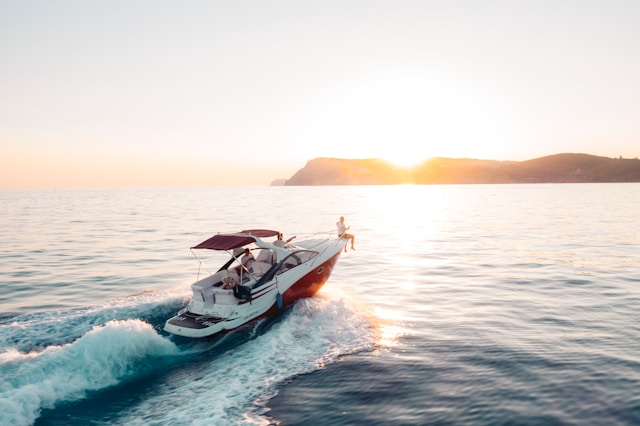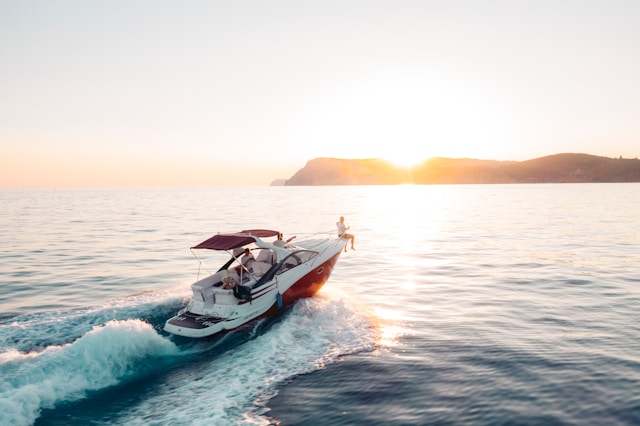Buying a boat is a dream for many, offering an escape into the tranquility of the water and the thrill of nautical adventures. However, the decision to purchase a boat should not be made lightly. It encompasses more than just choosing a model that catches your eye; it’s about understanding your boating aspirations, the financial commitment, and the responsibilities that come with ownership. In this guide, we’ll explore the top 6 essential aspects you should consider before setting sail on the boat-buying journey, ensuring that your investment brings you closer to the serene or exciting maritime experiences you envision.

1. Understanding Your Boating Needs
Before you leap into the decision to buy a boat, it’s crucial to have a clear understanding of how you intend to use it. Are you looking for leisurely weekends on the lake, fishing expeditions, or thrilling ocean adventures? Your activities will determine the type of boat that best suits your needs—from a simple kayak for serene lake outings to a robust yacht for sea voyages. Identifying your primary use early on can save you from future regrets and unnecessary expenditures.
Consider the size of the boat you need. This decision should factor in the number of people you plan to regularly have onboard, as well as the spaces you intend to explore. Larger boats offer more amenities and space, but they also come with higher maintenance costs and may limit where you can go due to their size. Smaller boats, on the other hand, are easier to manage and can access more secluded or shallow areas, offering a very different boating experience. With competitive boat financing options available, it’s best to assess your needs and choose a boat that fits them comfortably. It’s always better to start small and work your way up as your boating skills and preferences develop.
2. Budget Considerations
The cost of owning a boat extends far beyond the initial purchase price. Prospective buyers should also account for maintenance, storage, fuel, insurance, and potential repairs. Drafting a comprehensive budget that includes both the upfront costs and these ongoing expenses will provide a clearer picture of the total investment required. It’s also wise to include a buffer for unexpected costs, ensuring that your boating experience is not marred by financial stress.
Exploring financing options can also be a prudent step. Many dealers and lenders offer specialized boat loans with terms that can extend up to 20 years. Understanding the terms of these loans, including the interest rates and monthly payments, is essential. Additionally, keep an eye out for any tax benefits or deductions that may apply to boat ownership, as these can offer some financial relief.
3. Choosing the Right Boat
Once you’ve defined your needs and budget, the next step is choosing the right boat. This involves researching different types of boats and their specific features. For instance, fishing boats come equipped with rod holders, live wells, and other angler-friendly amenities, while sailboats offer a different kind of thrill entirely. It’s beneficial to attend boat shows, consult with experts, and, if possible, test different boats to get a feel for what suits you best.
Another vital consideration is whether to buy new or used. A new boat comes with the latest features, warranties, and the peace of mind that comes with being the first owner. However, it’s also a more significant financial commitment. On the other hand, used boats can offer considerable savings, but they require thorough inspection to ensure they are in good condition. Regardless of which route you choose, conducting proper due diligence is key.
4. Legal and Safety Requirements
Understanding the legal and safety requirements is fundamental to being a responsible boat owner. This includes obtaining the necessary licenses or certifications, which vary by state and the type of vessel. Additionally, there are safety courses available that not only fulfill legal obligations but also teach essential skills for handling emergencies on the water.
Equipping your boat with the required safety gear is also mandatory. The list of equipment includes life jackets for everyone on board, fire extinguishers, signaling devices, and first aid kits. Regular maintenance checks are crucial to ensure that your boat remains in compliance with safety standards and to prevent unexpected malfunctions during your adventures.
5. The Importance of Insurance
Securing proper insurance is an often overlooked aspect of boat ownership. Boat insurance can protect you against accidents, theft, natural disasters, and liability in case someone is injured while on your boat. The type of insurance and coverage you need will depend on the value of your boat, how you plan to use it, and where you plan to sail or store it.
6. Storage and Maintenance
Having a solid plan for the storage and maintenance of your boat is essential for prolonging its lifespan and ensuring it’s ready for use when you are. Options for storage include keeping your boat at a marina, on your property, or at a storage facility. Each option has its pros and cons, such as costs, accessibility, and the level of security offered. For instance, a marina might provide convenient access to water, but it can be costly and may expose your boat to the elements more than indoor storage.

Owning a boat is a significant investment and responsibility. It’s essential to do your research, understand your needs and budget, and make informed decisions throughout the buying process. With the right approach, your boat can be a gateway to memorable experiences on the water for years to come.



